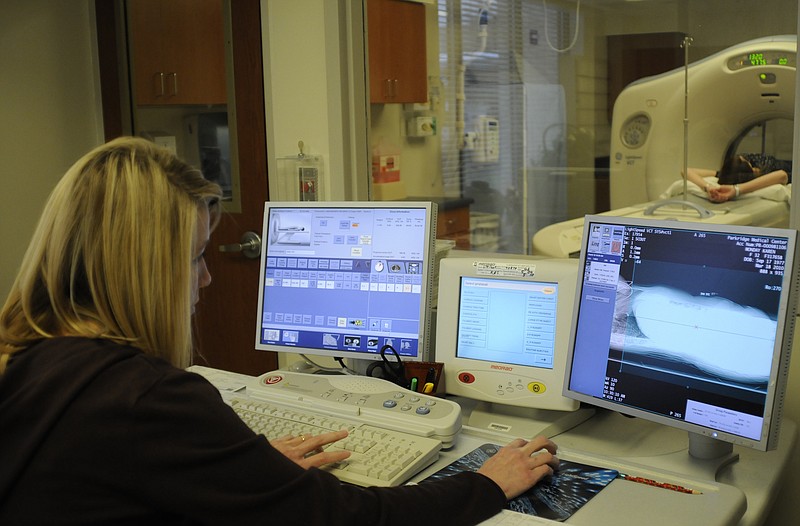Major provisions of the CON reform bill:
› Allow hospitals, mental health hospitals and rehabilitation facilities to add up to 10 percent more beds, within each category, every three years without state approval.› Repeal the need to obtain a CON for modification or expansion costing at least $2 million at an existing institution.› The state’s five largest counties, including Hamilton, would no longer need a CON to begin offering MRI services or to buy additional machines. Those services are often lucrative for facilities.› Abolishes the CON requirement for medical equipment costing more than $2 million.› Requires outpatient diagnostic centers to be accredited by the American College of Radiology after obtaining a CON.› Eliminates the CON requirement for lithotripsy, rehabilitation services and hospital-based alcohol and drug treatment for adolescents over 29 days.The legislation requirs the Health Services Development Agency to provide oversight on approved certificates of need and to consider the quality of services or facilities offered when evaluating applications.
NASHVILLE - Tennessee hospitals will be able to add beds, remodel and expand buildings, and buy new medical equipment - up to a point - without having to get the state's permission under a bill making its way through the Legislature.
The bill, sponsored in the Senate by Chattanooga Republican Todd Gardenhire and in the House by Cameron Sexton, R-Crossville, makes the most significant changes in years to the state's Certificate of Need program.
"It gets it toward the free market in some areas," Gardenhire said. "This allows hospitals to expand if they need to expand. They know better what they need to do better than anyone else does. This should help Erlanger if they want to grow and expand things. It'd help Parkridge [Medical Center] and it'd help [CHI] Memorial."
The legislation moved through House and Senate health committees last week and will come up in the finance committees this week.
States created Certificate of Need programs in the 1970s under a federal mandate to restrain health care costs by promoting orderly and coordinated development of new health care facilities, expansions and services. In Tennessee, providers must demonstrate a need for new beds, equipment or space to the Health Services and Development Agency.
The bill would give hospitals far more leeway in those areas.
Gardenhire said it also will save money. Now, he said, hospitals and other institutions may spend upward of $100,000 to hire attorneys and otherwise prepare for CON hearings, especially when rivals attempt to block their new initiatives.
"It lowers the costs of health care, and that's the big thing that's involved," Gardenhire said. "This is the first time somebody up here has really tackled lowering the costs of health care."
The bill's scope was hammered out last week in a meeting with stakeholders including the Tennessee Hospital Association, which seemed worried that it goes a tad too far toward the free market.
Joe Burchfield, THA vice president for communications, said the industry's perspective is "the regulation provided by the [Certificate of Need] process ensures measured development of health care in our system."
He said health care is not a true free market, given that state and federal dollars account for nearly 50 percent of all U.S. health care spending through Medicaid for the poor and Medicare for seniors.
Those programs come with regulations, including "all comer" provisions requiring hospitals to treat anyone who shows up.
"If you come to our door, we'll provide care regardless of ability to pay," Burchfield said, adding the CON process "sort of allows access for care and discourages 'cherry picking'" by other providers who may specialize and attract paying clients.
The legislation retains the Certificate of Need program and the need for Health Services Development Agency approval, including for new hospitals and outpatient diagnostic centers.
That allayed a concern of the hospital association, which contends free-standing outpatient diagnostic centers offering MRIs, CT scans and other imaging services under one roof could be "pulling away paying customers" and creating financial hardships for hospitals.
CHI Memorial CEO Larry P. Schumacher said in a statement Friday the nonprofit hospital has been talking with other stakeholders across the state about the bill.
"We believe that the CON law is a critical part of validating the need for health care services and ensuring the orderly development of health care services in our community," Schumacher said. "However, we also agree that the law is in need of modernization."
He said amendments adopted last week address "several critical concerns raised by hospitals across the state" but added there's more work to do yet.
"Our top priority is to ensure that legislation is designed to work for the patient, ensuring our ability to provide the safest, highest quality, and most appropriate care. Having practical and appropriate CON laws are one component of that goal," Schumacher said.
Officials at Erlanger, a public hospital, and Parkridge, owned by HCA, did not respond to requests for comment.
In addition to hospitals, other institutions currently subject to the CON process include nursing homes, mental health hospitals, home care organizations, ambulatory surgical treatment centers, outpatient diagnostic centers, rehabilitation facilities and methadone clinics.
Contact staff writer Andy Sher at asher@timesfreepress.com or 625-255-0550.
